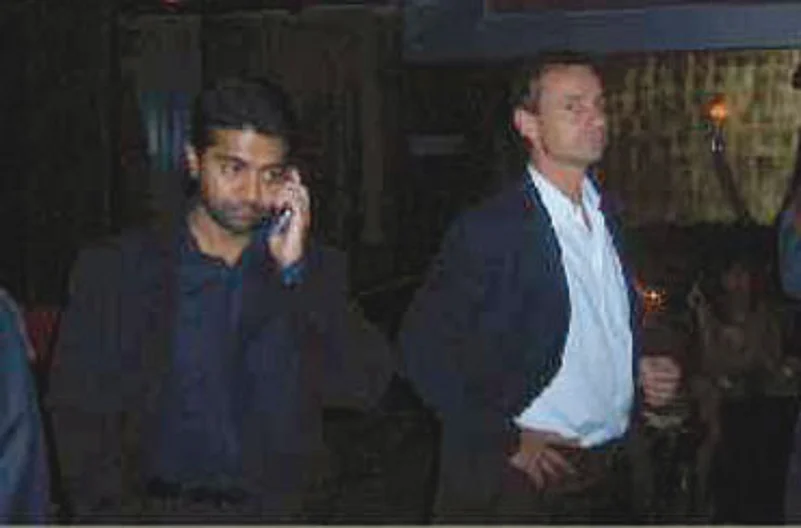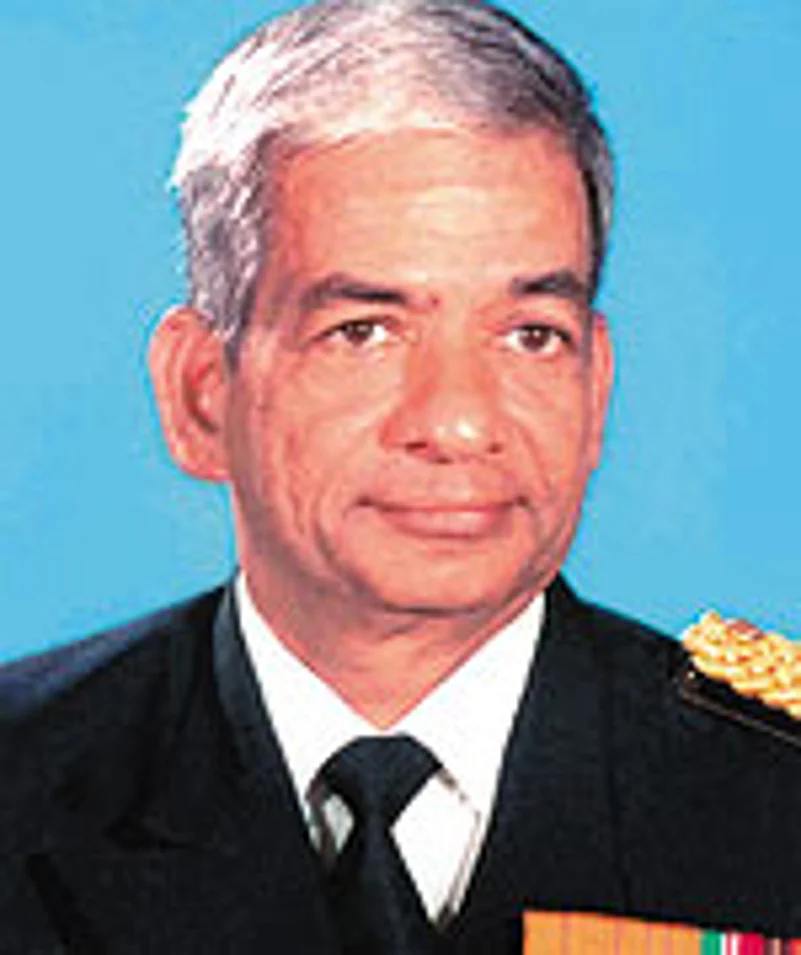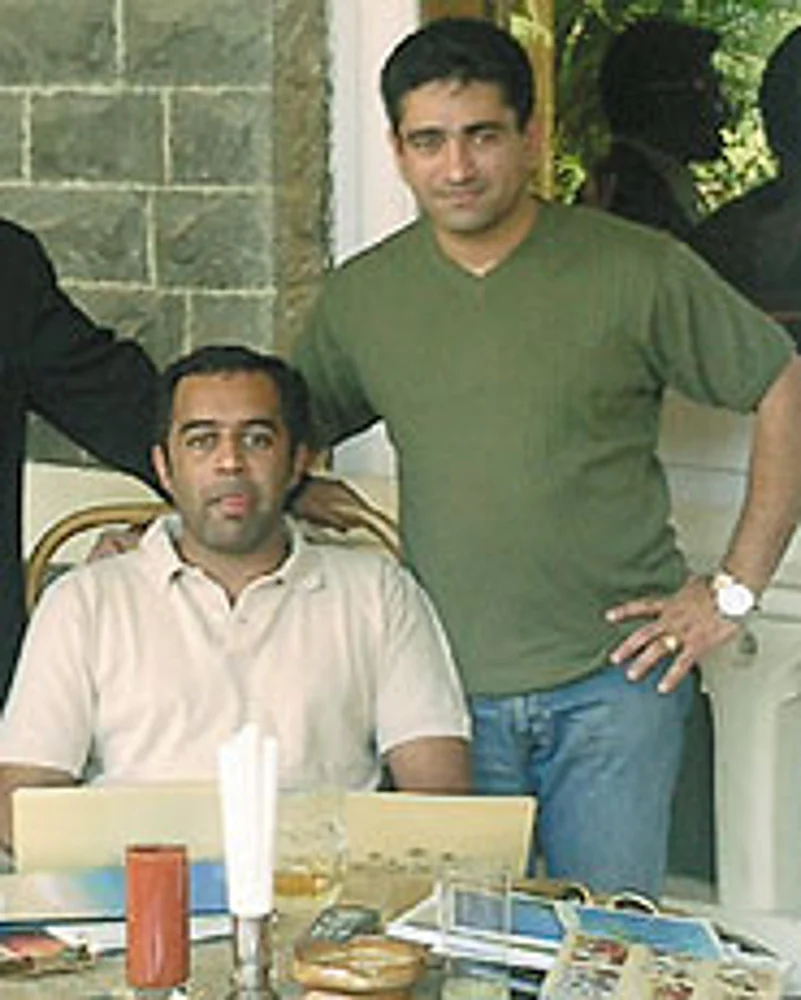How many contradictions does it take to bury the truth? Union defence minister Pranab Mukherjee's repeated efforts to gloss over the culpability of Kulbhushan Parashar and Ravi Shankaran—named as the prime accused in the naval war room leak case—have come to naught. The CBI's chargesheet filed at the metropolitan court in Delhi on July 3 has blown the lid off what is turning out to be the most serious security breach in the history of independent India. Five persons—Parashar, Shankaran, Wing Commander S.L. Surve and Commanders Vijender Rana and V.K. Jha—have been charged under the Official Secrets Act for leaking classified secrets which "is likely to affect the sovereignty and integrity of India." The CBI has recovered 7,000 documents that were smuggled out of the naval war room on pen drives.
Sample the leaks detailed in the CBI's chargesheet and submitted in court:
- A file containing a war game marked 'Top Secret' based on inputs gathered by Indian intelligence sent to naval HQ.
- Details of navy's operations networking its fleet and submarines for the next 20 years. This information would be of great value to multinational arms suppliers since it gives details of the navy's future acquisition plans.
- Top secret details of the "vulnerable areas" and "vulnerable points" in India's air defence network
- A brief marked 'secret' on Sir Creek on the Gujarat coast for the deputy chief of naval staff ahead of talks with Pakistan
- The standing operating procedure for the Pechora missile project
- Details of the joint response by the army, navy and air force in case of an ingress by Pakistan in the Kutch sector.

But this is what the CBI has so far: "Abhishek Verma had introduced Parashar to Mr Phillip, MD, M/s Atlas Telecom, a UK and Canada-based company of the Atlas Group of companies. Parashar joined this group and he was made a vice president (marketing) of M/s Atlas Defence Systems. The Atlas Group of companies hosted parties to which serving defence officials and suppliers/agents were invited, which included foreigners also, which were primarily organised by Kulbhushan Parashar on the direction of Abhishek Verma." Why was a self-proclaimed telecom company entertaining defence officials through Parashar? Explains the CBI chargesheet: "The links of Kulbhushan Parashar with Atlas have also been established with the seizure of documents pertaining to M/s Atlas Defence Systems from his residence."

If the leak from the war room involved classified information, then why didn't the navy and the defence ministry take any action? Or was there a cover-up? How else can one explain the deliberate acts of omission and commission by the then chief of personnel, vice admiral Venkat Bharatan. The navy's Board of Inquiry (BoI), constituted under his authority, failed to record serious breaches of security. Sources in naval HQ had told Outlook that the BoI's report had been rewritten at the behest of "senior officers."
If this was so, then it could only be done with Bharatan's approval. Sources say it was Bharatan, along with deputy judge advocate-general Captain Rakesh Mehta, who suggested that the three naval officers accused in the leak case—Kashyap Kumar, Rana and Jha—be dismissed without trial. This helped put a cover on Shankaran's role and allowed him to escape abroad, while Parashar used the time to wipe out evidence against him. Ironically, today Bharatan is one of those who stands to gain if navy chief Admiral Arun Prakash were to resign from service before he is due to retire on October 31.

Though it was only directed to investigate the war room leak in February this year, nine months after it was first detected, the CBI has made remarkable progress. The agency also went ahead with its raids on those linked with the case despite political pressure. The information it has recovered from the accused has surprised many in the navy.
Surprisingly, while the Intelligence Bureau was investigating the case last year, someone was quietly passing on information to Parashar. The CBI has recovered a secret IB report from Parashar which pertained to his activities as an arms dealer. In fact, Shankaran had earlier told Outlook in a taped conversation that an officer involved with the present case had told him that the "file on him" was much thinner than the file on "Parashar and Verma". So who was passing on these intelligence reports to Parashar and Shankaran? Did he have a mole inside the IB or was someone in naval HQ helping them stay ahead of the game? These are just one of the many questions that the government has refused to answer so far.


























